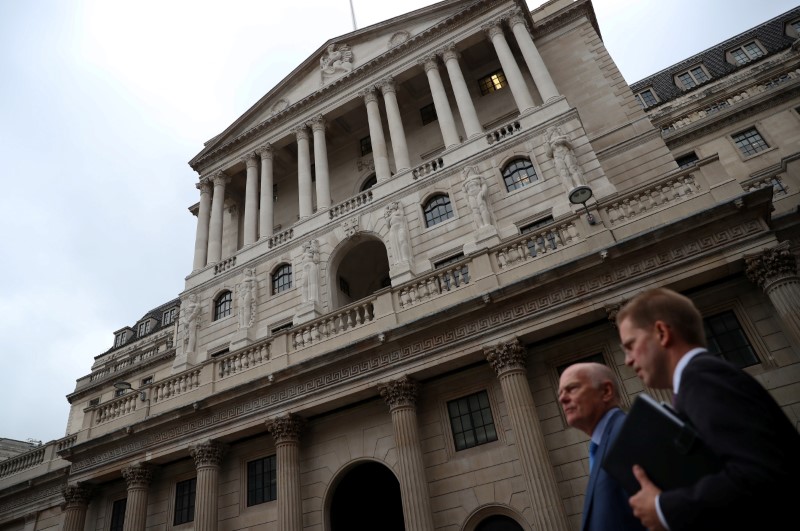By Huw Jones
LONDON (Reuters) - Britain's banks need a watertight Brexit transition deal by Christmas to avoid a potentially disorderly shift of people and operations to the European Union, a top Bank of England official said on Wednesday.
BoE Deputy Governor Sam Woods said that while the British government wants a deal to bridge leaving the EU in March 2019 and the start of new trading terms, the EU's position was still unclear and the clock was ticking.
"If we get to Christmas and the negotiations have not reached any agreement on this topic, diminishing marginal returns will kick in," Woods told the annual City Banquet in London's "Square (NYSE:SQ) Mile" financial district.
Without a legally binding transition deal by year end, banks would have to start applying for licenses in the first quarter of next year to allow enough time for regulators to process them.
"The impact of this first phase of contingency planning on jobs will be relatively modest," said Woods, who heads the BoE's Prudential (LON:PRU) Regulation Authority, which licenses banks and insurers.
Brexit poses "material risks" to the BoE's objectives of maintaining stable lenders, but "we are well on the case in dealing with them", Woods said.
GEOFINANCE
"Geofinance" or raising barriers in the cross-border wholesale financial market is likely to be the defining challenge of the next few years, Woods said.
It was an additional "dynamic" to "cliff-edge" risks from Brexit, and differences over finalizing global bank capital rules, he said.
The United States has forced foreign banks operating there to set up holding companies with their own capital, and the European Union is following suit.
"We are not persuaded that these developments are a good idea," Woods said.
"Unlike retail banking, wholesale banking is international by nature. We risk kidding ourselves if we think it can be neatly chopped up into geographic units in which international banks can be supervised and resolved separately."
It was best to deepen cross-border cooperation between regulators, he said. Nevertheless, the BoE appears to be responding to these developments to some extent.
Woods said he will force branches of EU banks in Britain that have sizeable retail deposits to become subsidiaries after Brexit, a costly undertaking which involves building up a local cushion of capital. This will affect a handful of banks and is in line with the current treatment of non-EU banks which have UK branches.
He also announced a public consultation to tighten oversight of double-leverage, or when UK parent banks have to issue debt to capitalize subsidiaries elsewhere in the world.
Interest payments on the debt is often paid out of dividends from the subsidiary to the parent, but Woods is worried that this cash flow can be erratic, or even capped by local regulators, thereby threatening the stability of the parent bank.
Overseas subsidiaries may also be required by local regulators to have an "outsize" portion of the group's capital, which might mean that some risky operations back home not being capitalized enough, Woods said.
"We need to be mindful of the risks this can create, and so today we are announcing a new approach, to ensure that UK banking groups are at least as strong as their parts."
He is also expanding capital and liquidity reporting requirements for banks to make it easier to check if they are holding enough capital across the countries and currencies they operate in to get to "grips with an important geofinancial issue".
